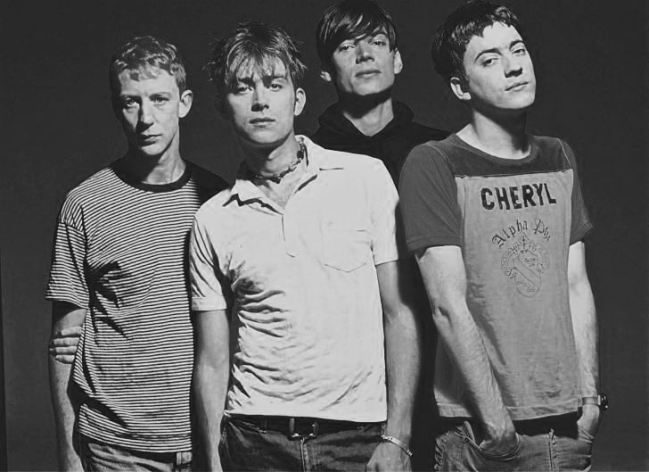Popular is a blog on Freaky Trigger by Tom Ewing that reviews every British number-one hit single in chronological order. Ewing started writing it in 2003 – with Al Martino’s Here in my Heart from 1952 – and is now up to 1997. It’s a hell of a project, allowing you to see the context in which a hit becomes a hit, and how it is defined by the hits around it. Over time Popular has become less about Ewing’s reviews and scores, insightful though he is, and more about the debates in the comments section, which is one of the healthiest and most positive on the net (by which I don’t mean that everyone is positive about every record, but that it is remarkably civil, with little time wasted on slanging matches and cheap point-scoring).
I’ve posted there occasionally, but less since I started writing over here. I’ll contribute even less in future, I imagine – while I was at university in the early noughties I listened to the radio very seldom and had little idea what was number one in any given week, and as time went on my estrangement from chart music became almost total.
Right now we’re still in an era I remember first-hand and took an active interest in, even if not all the records are to my taste. The song currently under discussion, Blur’s Beetlebum, is oneI’m very fond of. I’d say it’s Damon Albarn’s masterpiece, even – one of the few times this most dry and cerebral of songwriters succeeded in engaging the brain and heart at the same time.
The two Blur singles that immediately precede Beetlebum, Stereotypes and Charmless Man (released less than a year before Beetlebum), are the dregs of Blur’s Britpop period. The Great Escape isn’t a record I know well, but I do know it well enough to know that there were better songs on it that weren’t as singles. Hearing those ugly – indeed charmless – songs at the time, it felt that that the band, and more particularly Albarn, was at the end of the line with that sound. The jeering, garish aggressive sneeriness of them, while bracing, is cheap and cynical beside, say, Jarvis Cocker’s more thoughtful deconstruction of English class and aspirationism. And as for its success as pop music, well, it’s easy to see why Oasis’s (What’s the Story) Morning Glory was vastly more popular in the long term. Blur had to change.
They did.
Beetlebum was the start of Blur’s second act, in which laddish-geezer Albarn became serious-and-eclectic-songwriter Albarn. It wasn’t necessarily what all his fans wanted from him, or for him, but it did open him up to a different audience than he’d had previously (me, instance – Blur remains the only Albarn record I’ve ever parted with money for, and will likely remain so). But it wasn’t Albarn’s new perceived honesty and soulfulness that sold me on Beetlebum – I don’t know how much honesty or so is really in it. Pulling off the appearance of straightforward intimacy may have been just another of his aesthetic coups. Nor was it the many nods to White Album-era Beatles, few songs from which I knew at the time.
It’s the sound of the record, the textures, the comforting ennui, the sleepiness of the verses, and the way, as Ewing notes, the “surly, choppy verses that ought to flare into rage on the chorus, but instead bloom into sleepy, burnt-out neo-psychedelic harmonies”. It may be easy to forget now, but the quiet-loud, quiet-loud shift in a song’s dynamics was so standard a part of US alternative rock and indie that, since this was obviously a more US-influenced record than anything heard from Blur before, while listening to Beetlebum for the first time, a majority of listeners probably did expect Graham Coxon to step on his Pro-Co Rat and Albarn to start shouting. The chorus’s shift into falsetto, the scrappy semi-clean guitars and the ‘ooh’ block harmonies, then, was unexpected, audacious even.
Not all of Blur was so successful. The only other songs I have much interest in hearing again now are Country Sad Ballad Man and, very occasionally, Song 2 and Essex Dogs. Many of the album’s other songs fall flat: M.O.R., a straightforward Bowie-in-Berlin rip, is embarrassing. Chinese Bombs proved that, whatever else they could do, Blur’s rhythm section couldn’t rock. Theme from Retro had a dub echo and an organ and not much idea what to do with either of them. But Beetlebum is a glorious success, Blur’s finest record bar none, and still the most compelling thing Albarn has done with any of his projects.
